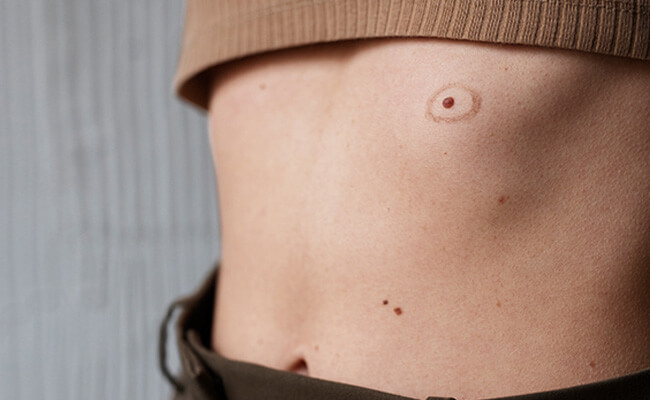


At Chesapeake Oncology Hematology Associates, we've provided high-quality and customized skin cancer treatment across Maryland for over two decades. Our experienced board-certified oncologists specialize in effectively treating various skin cancers. Beginning with the consultation to diagnosis and treatment, we'll be with you every step of your care, ensuring seamless coordination and support.
Looking for a skin cancer diagnosis or treatment near you? Visit one of our oncology centers in Maryland today.
Our oncologists at Chesapeake Oncology Hematology Associates understand the need for quick diagnosis and treatment for non-Hodgkin's lymphoma. We offer integrated care to treat this disease while ensuring the health and well-being of our patients.

It's performed to remove cancerous tumors, along with some surrounding healthy tissues and lymph nodes. We will perform either a minor, in-office procedure, or a major surgery, depending on the type and stage of your cancer.
Radiation is used to treat several types of skin cancers, including melanoma, basal cell carcinoma, and squamous cell carcinoma. It destroys cancer cells using high-energy x-ray beams. Radiation therapy may be recommended:
At COHA, topical creams or IV/oral drugs are used to shrink and kill cancer cells. We may offer chemotherapy before surgery, after surgery, or in combination with other skin cancer treatments, depending on your condition.
It's performed to determine whether your cancer has spread to the sentinel lymph node (the first lymph node to which cancer is likely to spread from the primary tumor). If cancer is present in the sentinel lymph node, it may have spread to surrounding lymph nodes and organs. This procedure is crucial to determine the stage and severity of your cancer and the best treatment option for it.
Using specialized drugs, immunotherapy boosts your immune system's ability to identify and destroy cancer cells. It's usually recommended for advanced skin cancers and minimizes the chances of recurrence of cancer and melanoma after surgery.

8:00 AM ~ 4:30 PM (M-F)

8:00 AM ~ 4:30 PM (M-F)

8:00 AM ~ 4:30 PM (M-F)
Depending on its type, skin cancer signs include:
Depending on your overall health condition and your tumor's type, size, location, and depth, one or more of the following procedures may be used to treat your skin cancer:
The key cause of skin cancer is sun exposure. Therefore, practicing these measures can protect your skin from the sun and minimize your skin cancer risk:
Melanoma
Basal Cell Carcinoma and Squamous Cell Carcinoma
Check for these signs when examining yourself for skin cancer:
If you have any early signs of skin cancer, visit your oncologist immediately for a proper diagnosis and treatment.